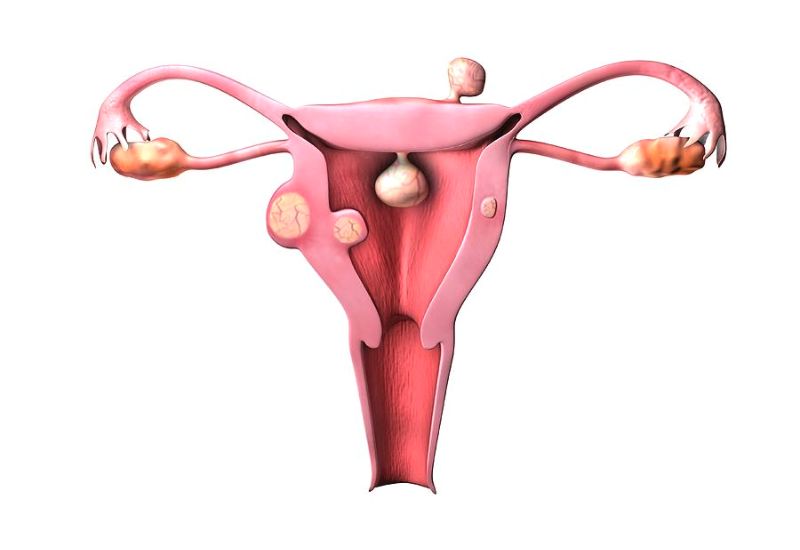Menorrhagia, commonly known as heavy menstrual bleeding, is a condition that affects many women, causing significant discomfort and inconvenience in daily life. This article aims to provide an in-depth understanding of menorrhagia and discuss its potential dangers.
1. What is Menorrhagia?
Menorrhagia is a menstrual disorder characterized by prolonged and excessively heavy menstrual periods. While it’s not an uncommon condition, many women are not fully aware of what menorrhagia entails and often confuse it with typical menstrual symptoms.
According to gynecologists, menorrhagia involves menstruating at regular intervals but with bleeding lasting more than seven days, whereas a normal period typically lasts three to five days. The blood loss in menorrhagia exceeds 80ml per cycle, compared to the usual 50-80ml. Women with severe menorrhagia might need to change sanitary pads or tampons every hour, experience large blood clots, and have menstrual periods that can extend to a month. Over time, this can lead to significant fatigue, shortness of breath, and symptoms indicative of anemia.
Additionally, women suffering from heavy menstrual bleeding might experience other symptoms such as lower abdominal pain, back pain, fatigue, nausea, dizziness, mood swings, and emotional instability.

Menorrhagia is a health concern for many women.
2. Causes of Menorrhagia
The causes of menorrhagia are varied and can include hormonal imbalances, stress, nutritional deficiencies, underlying health conditions, uterine abnormalities, medication side effects, and environmental and lifestyle factors.
– Hormonal Changes: Heavy menstrual bleeding can occur due to imbalances in estrogen and progesterone levels. Factors causing hormonal changes include stress, nutritional disorders, health conditions, weight fluctuations, age, endocrine disorders, and more.
– Uterine and Ovarian Disorders: Conditions such as uterine polyps, fibroids, endometriosis, pelvic inflammatory disease, and endometrial hyperplasia can lead to menorrhagia.
– Environmental and Lifestyle Factors: Work stress, environmental changes, excessive or insufficient physical activity can contribute to heavy menstrual bleeding.
– Health Factors: Infections such as vaginal bacterial infections or Candida albicans can alter menstrual flow characteristics.
– Stress and Emotions: Psychological stress, anxiety, and intense emotions can influence menstrual volume.
– Medication: Certain medications, including birth control pills, hormone therapy, and treatments for vaginal infections, can affect menstrual flow.

Uterine and ovarian diseases can cause heavy menstrual bleeding.
3. Is Prolonged Menorrhagia Dangerous?
Prolonged menorrhagia can indicate underlying health issues and its danger level depends on its cause and duration. Persistent menorrhagia, lasting for several months or occurring without interruption, can lead to severe health problems. It may be a sign of conditions like fibroids, endometrial inflammation, other uterine diseases, or hormonal disorders. These issues can affect overall health, reproductive capabilities, and daily quality of life by causing fatigue and anemia due to excessive blood loss.
Prolonged menorrhagia can also result in iron deficiency anemia and other nutrient deficiencies, hormonal imbalances, increased risk of infections, and psychological impacts on women. Therefore, if experiencing prolonged menorrhagia, it’s crucial to consult a doctor for evaluation, diagnosis, and appropriate treatment. A healthcare provider will provide a detailed assessment and recommend suitable treatments to mitigate risks and address the condition safely.
4. Treatments for Menorrhagia
The treatment for heavy menstrual bleeding depends on the underlying cause and severity of the condition. Common treatments include:
– Physiological Methods: Applying heat, massage, yoga, and stress reduction can alleviate heavy menstrual bleeding symptoms.
– Lifestyle Changes: Improving diet, adding nutritional supplements, regular exercise, and stress management can help reduce symptoms.
– Hormone Therapy: Doctors might prescribe hormonal medications (such as estrogen and progesterone) or birth control pills to regulate the menstrual cycle and reduce bleeding.

A gynecologist may prescribe hormonal medications or birth control pills to regulate your menstrual cycle for heavy menstrual bleeding.
– Antispasmodic Medication: For women experiencing severe uterine cramps causing heavy bleeding, antispasmodic drugs may be prescribed.
– Surgery: In severe cases where other treatments are ineffective, surgery might be necessary to remove uterine fibroids or address other uterine issues.
Treatment strategies will be tailored to individual cases, so it is essential to consult with a specialized healthcare provider for accurate advice and guidance.
This information aims to provide a comprehensive understanding of menorrhagia and its implications. If you need professional consultation or treatment, feel free to contact Thu Cuc TCI for expert advice and support.








